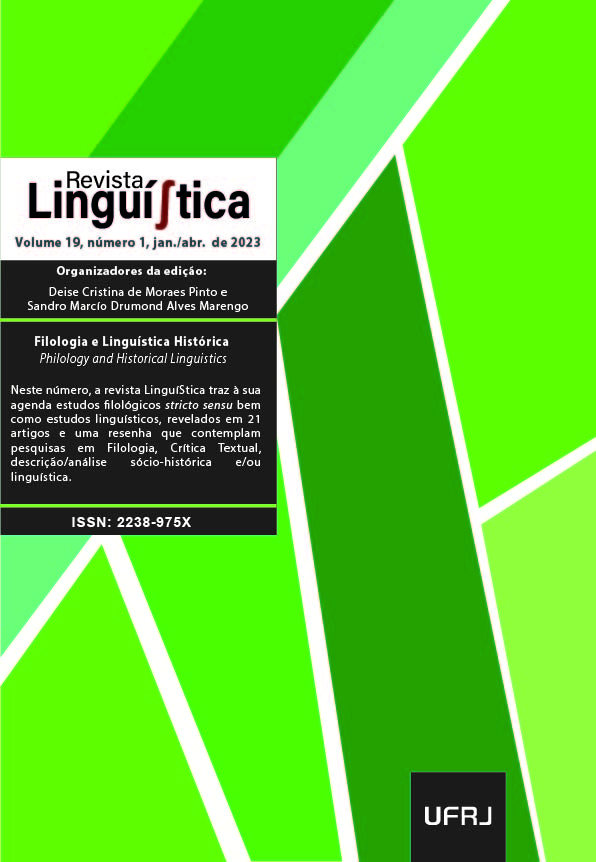“There are Portuguese children who only speak ‘Brazilian’”: cultural industry, mass media, and intralinguistic contacts in the variational space of lusophony from a historical point of view
DOI:
https://doi.org/10.31513/linguistica.2023.v19n1a57291Keywords:
variational space of lusophony, pluricentrism, (intra)linguistic contacts, mass media.Abstract
The article published in Diário de Notícias on 10th November 2021, under the heading “There are Portuguese children who only speak ‘Brazilian’”, quickly became popular, and has been the subject of numerous debates on linguistic prejudice/discrimination, and even xenophobia. However, one crucial topic has received limited attention so far: The question of how the cultural industry and the mass media can affect the beliefs and attitudes of speakers – or even the language itself, by providing contact situations that can result in linguistic change. In this essay, we will start from the case which were reported by the Portuguese newspaper Diário de Notícias to discuss the role of mass media as facilitators of linguistic contacts. To this end, we will initially present a brief analysis of the historical path that led to the conformation of the pluricentric architecture of Portuguese, as well as the interactions between varieties in the variational space of Lusophony nowadays. Next, some reflections on the impact of the cultural industry and mass media on the spread of certain varieties will be proposed – taking into consideration the case of Brazilian Portuguese in Portugal.
Downloads
Published
Issue
Section
License
Copyright (c) 2023 Revista Linguí∫tica

This work is licensed under a Creative Commons Attribution-NonCommercial 4.0 International License.
Authors who publish in the Revista Linguí∫tica agree with the following terms:
The authors maintain their rights, ceding to the journal the right to first publication of the article, simultaneously submitted to a Creative Commons license permitting the sharing with third-parties of published content as long as it mentions the author and its first publication in the Revista Linguí∫tica.
Authors may enter into additional agreements for the non-exclusive distribution of their published work (for example, posting in online institutional or non-profit repositories, or book chapters) so long as they acknowledge its initial publication in the Revista Linguí∫tica.

The journal Revista Linguí∫tica is published by the Post-Graduate program in Linguistics of UFRJ and employs a Creative Commons - Attribution-NonCommercial 4.0 International (CC-BY-NC).









